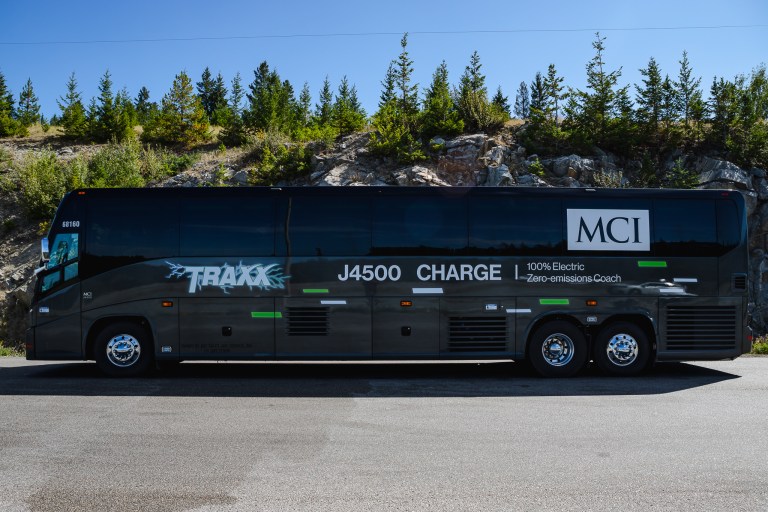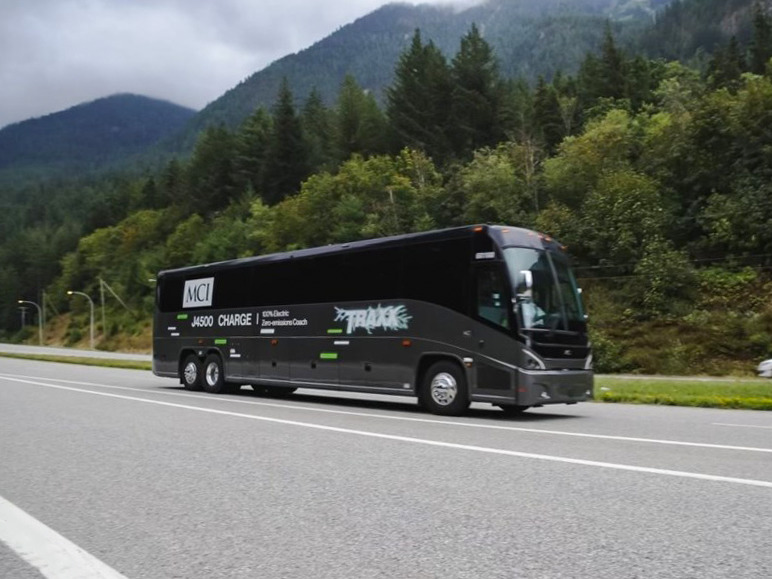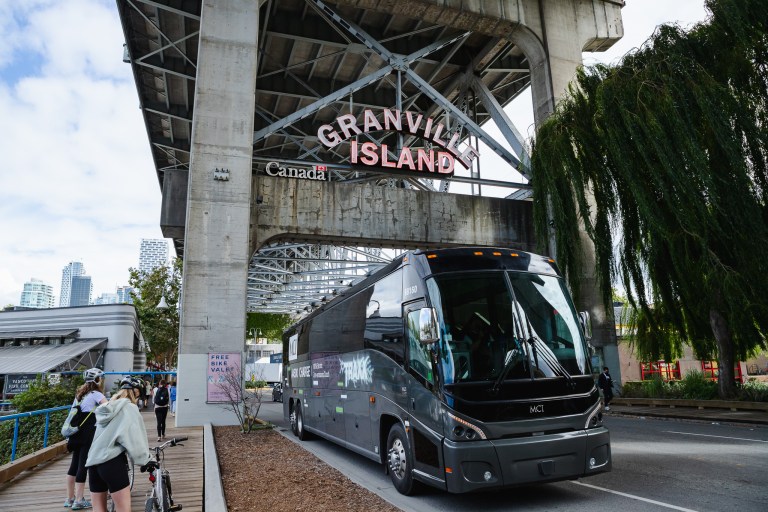In The News
Canadian operator sets world record for longest electric-bus trip
Published by Bus & Motorcoach News

The trip was 380 kilometers, a 236-mile electric-bus journey from Kamloops to Vancouver, and included an elevation gain of 830 meters, or 2,723 feet, between Kamloops and the Coquihalla Summit.
“Once the coach arrived in Delta, (it) was still left with over 100K in range left to go, indicating that although the demands of power on the highway were great, the electric coach was ready to take on the task,” the company said in a statement.
The Aug. 30 trip was documented for submission to Guinness World Records. The record is expected to stand since no one has yet attempted distance or climb records in zero-emission luxury coaches.
The purchase of its first electric bus — the no-emission, plug-in J4500 Charge from MCI in Winnipeg — is the start of a move to more battery-electric and fuel-cell buses, the company said.
“Once the coach arrived in Delta, the coach was still left with over 100KM in range left to go, indicating that although the demands of power on the highway were great, the electric coach was ready to take on the task,” the company said in a statement.
The Aug. 30 trip was documented for submission to the Guiness Book of World Records. The record is expected to stand since no one has attempted distance or climb records in zero-emission luxury coaches yet.
First electric bus
The purchase of its first electric bus — the no-emission, plug-in J4500 Charge from MCI in Winnipeg — is the start of a move to more battery-electric and fuel-cell buses, the company said.
The battery-electric highway coach is engineered for rugged reliability on all roadway surfaces, designed to torque up fast and power through even the steepest road grades. The three American-made XALT lithium-ion batteries that power the bus allow it to travel smoothly and quietly at highway speeds. The batteries can be fully charged with a four-hour plug-in and also partially recharged with stops and starts while the bus is being driven.

Electric-powered vehicles are more common for commuter transit in cities, and zero-emission intercity travel is just beginning to happen. TRAXX is looking to be at the forefront of this evolution.
Fundamental shift
“With new groundbreaking innovations becoming the frontier of our future economy, it is important that we continually evaluate how we do business. TRAXX has taken the pandemic to look at how to move forward as we emerge from a trying time in history, and embraced the challenges faced by the travel industry,” TRAXX said in a statement.
TRAXX — with offices in Vancouver, Edmonton, Calgary and Medicine Hat — is a charter and tour bus operator with a fleet of 240 motorcoaches.

The day after the record-setting voyage, the TRAXX team — including CEO Matthew Cox — and guests boarded the J4500 again, only this time in the heart of Vancouver for three separate 90-minute tours around landmark locations in the area. At day’s end, the all-electric J4500 coach was found to have used only between 6% and 9% battery life to power each tour, according to the company.
The pandemic has overshadowed an important transformation that is occurring in the transportation industry, which is undergoing a once-in-a-century, fundamental shift.
“While the infrastructure has room to grow to offer a broad application to fully electric group travel options like the coach, the voyage has taught us that alternative fuel and power sources are without a doubt, the way of our future,” Cox said.
Related
Press Releases
NFI subsidiaries New Flyer and MCI appoint industry leader Ian Macpherson as Vice President of Engineering Services
Read More
Press Releases
NFI presents at White House Roundtable focused on strengthening U.S. bus manufacturing and clean transit deployment
Read More
Press Releases
MCI Private Sector expands its sales team and increases coverage in the Southeast
Read More


